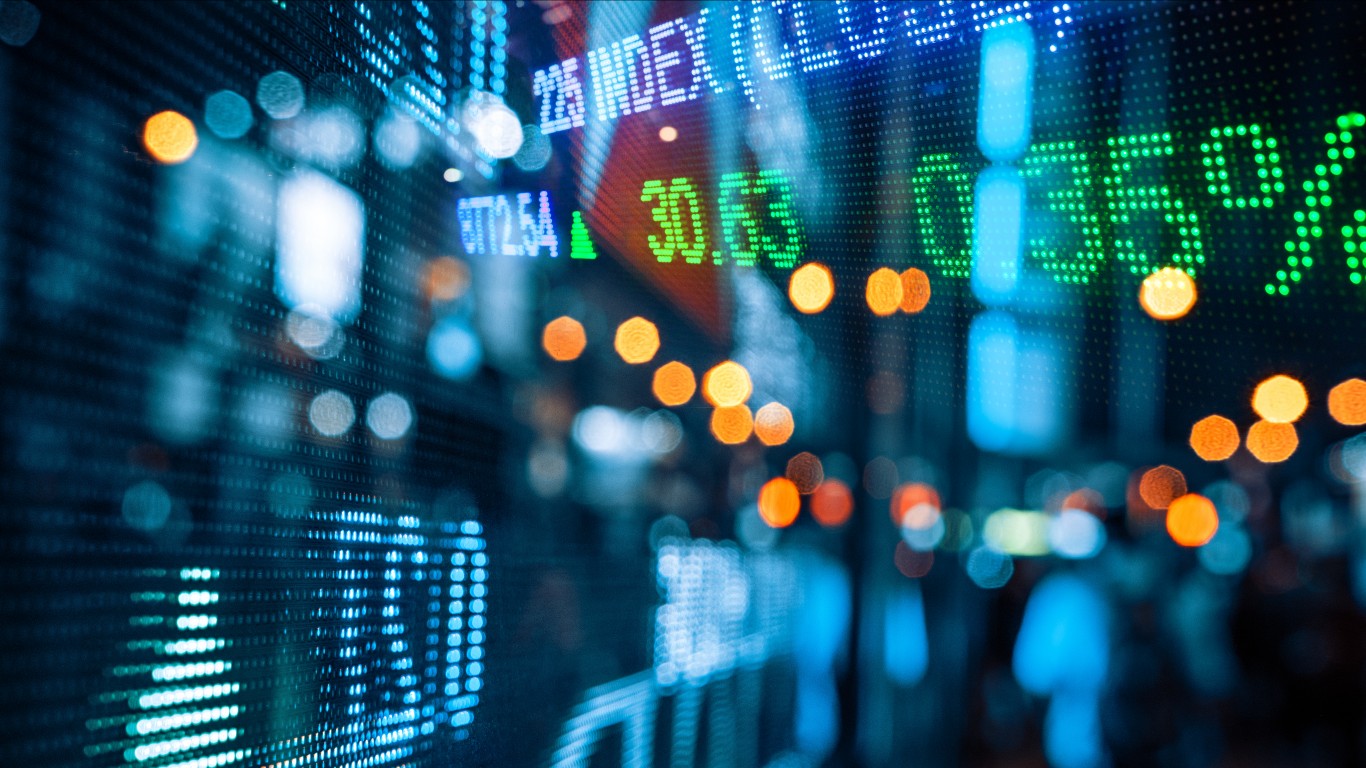Investing
New DJIA Index Changes Going From America 1.0 to America 3.0 With Biotech and Tech

Published:
Last Updated:

One thing that has been proven time after time is that major stock indexes go higher. One interesting aspect is that these indexes are often engineered to go higher by swapping out the underperforming stocks in favor of better performing stocks. The Dow Jones industrial average (DJIA) is unlike most indexes because it uses a share price-weighting calculation rather than using a market capitalization-based weighting. In short, stocks with higher share prices dominate the Dow while stocks with low share prices have low representation.
The DJIA has just made a major index change announcement. Frankly, this is will look a bit strange, and the real effort behind the Dow changes may simply be to juice the index higher in the future than due to the reasons cited.
S&P Dow Jones Indices announced on Monday, August 24, 2020, that certain changes would be made to the index that take effect before the opening of trading on Monday, August 31. The Dow Jones news wire reported that the changes were in response to Apple’s planned stock split, but the DJIA is getting rid of some serious long-term laggards and adding in what may be more in-line with America 2.0 or 3.0.
According to the release, Exxon Mobil Corp. (NYSE: XOM) is being kicked off the index and will be replaced by Salesforce.com Inc. (NYSE: CRM). Does a company making applications and software for workers and businesses sound more promising than having two oil giants whose shares have lagged for years? Apparently, S&P believes that. Also worth noting is that Salesforce pays no dividend at all, and most Dow investors cherish their dividends.
Big pharma’s leadership on the Dow under Pfizer Inc. (NYSE: PFE) will now be replaced by biotech giant Amgen Inc. (NASDAQ: AMGN). This represents a serious change as there has never been a biotech stock inside the DJIA. Does this prove that the biotech industry is now just part of big pharma after all?
Raytheon Technologies Corp. (NYSE: RTX) had been the holdover Dow stock after the Raytheon merger and simultaneous break-up into three companies, and it is being replaced by Honeywell International Inc. (NYSE: HON). Interestingly, Honeywell used to be a Dow component before the conglomerate was jettisoned from the index back in 2008.
The S&P Dow Jones Indices report specified that these changes were prompted by the coming four-for-one stock split of Apple Inc. (NASDAQ: AAPL). The move was going to reduce Apple’s weighting handily in the Dow due to the lower stock price, and the website IndexArb most recently gave Apple a 12.2% weighting in the DJIA due to its price being so much higher than the next component.
The Dow/S&P announcement also noted that the index’s weighting in the Information Technology sector would be lower without the changes. As for these changes, the announcement said: “They also help diversify the index by removing overlap between companies of similar scope and adding new types of businesses that better reflect the American economy.”
What was not said is that the companies being replaced were acting as a drag against the over index performance. When most investors ask about “the market,” it is “the Dow” that has historically been cited rather than the S&P 500 or the Nasdaq Composite. As with all prior index changes, the Dow’s changes will disrupt the level of the index at the time of the change. That said, if indexes want to reflect better performance over time, they are likely to include stocks that they think will do better over time versus stocks that will lag.
One recent addition to the Dow that has not worked well was the addition of Walgreens Boots Alliance Inc. (NASDAQ: WBA). The Dow also finally gave up in recent years on the poor performance and antics happening within General Electric Co. (NYSE: GE), and the most longstanding member was booted out of the index.
Many other companies have seen their shares ousted from the Dow in the past 20 years or so. Looking back to 1999, only 16 of the companies in the Dow at that time remain on the index today.
This price weighting is a very antiquated calculation for an index. Imagine if Alphabet or Amazon were in the Dow with 25% total index weightings. One thing that is not new is that index managers do want their underlying indexes to go up over time, and that means that culling the laggards and those with secular weakness comes into play.
If the Dow truly wants to reflect America 2.0 or 3.0, it needs to adopt a weighting by the market capitalization of its companies rather than solely by their stock prices as if this was the 1920s. Then again, maybe it needs a modified market capitalization weighting on top of that to prevent any single stock from ever having more than 10% of the entire index weighting.
The last few years made people forget how much banks and CD’s can pay. Meanwhile, interest rates have spiked and many can afford to pay you much more, but most are keeping yields low and hoping you won’t notice.
But there is good news. To win qualified customers, some accounts are paying almost 10x the national average! That’s an incredible way to keep your money safe and earn more at the same time. Our top pick for high yield savings accounts includes other benefits as well. You can earn up to 3.80% with a Checking & Savings Account today Sign up and get up to $300 with direct deposit. No account fees. FDIC Insured.
Click here to see how much more you could be earning on your savings today. It takes just a few minutes to open an account to make your money work for you.
Thank you for reading! Have some feedback for us?
Contact the 24/7 Wall St. editorial team.